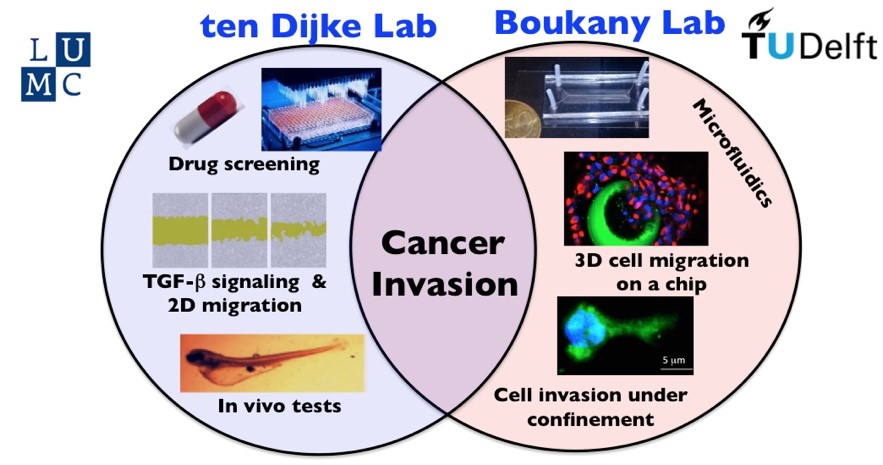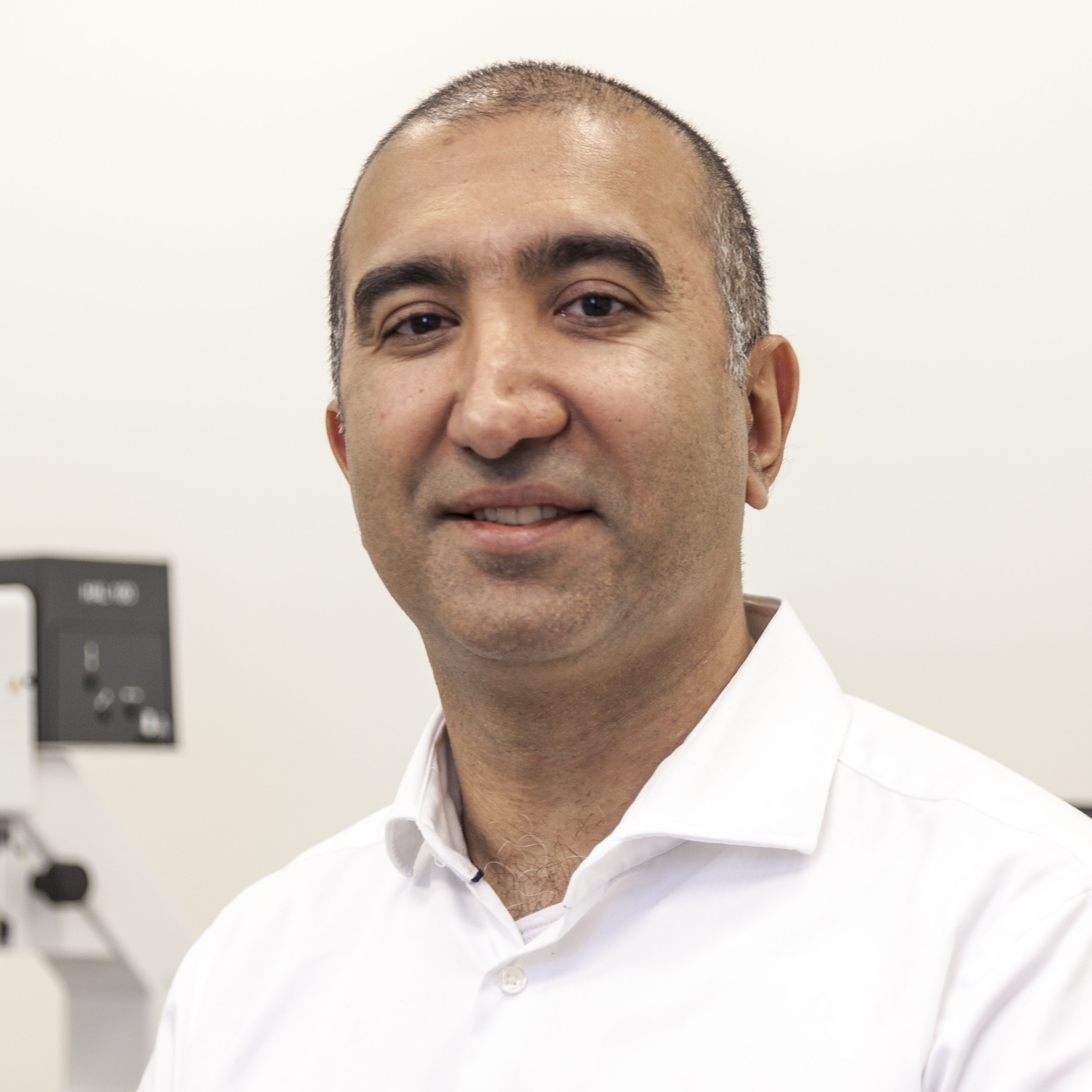The Boukany group will collaborate closely with LUMC
The Boukany group will collaborate closely with Leiden University Medical Center (LUMC) to develop a tumor-on-a-chip for cell invasion studies, after winning a joint grant with LUMC..
The joint grant is funded by Health Technology Programme TU DELFT – LUMC. This call designed to explore new topics for and strengthen the already existing collaboration between LUMC and TU Delft. We won for the Technology to improve healthcare - Oncology topic.
In the last couple of years, the Boukany lab focused on the development of novel microfluidics platforms for the manipulation of living systems. Recently, his group initiated new and active collaborations with other team members in the LUMC and Erasmus-MC laboratories to address more applied problems in the medical field with clear clinical impacts.
For instance, anti-cancer agents identified using 2D or monotypic 3D studies have failed in the clinic, as assay conditions do not mimic the complexity of tumors. To tackle this problem, the Boukany and ten Dijke labs team up to create a new in vitro platform to mimic the heterogeneity of tumor microenvironment by combining the worlds of cancer biology, soft matter, and microfluidics. In this multidisciplinary project, the Boukany's group will integrate microfluidic devices with soft matter technologies to mimic tumor microenvironment for 3D cell migration and biomechanics measurements to unravel the underlying biophysical and biological mechanisms behind cancer cell invasion in close collaboration with ten Dijke's lab (LUMC). For this collaboration, LUMC will provide the live cell and high throughput imaging systems, and advanced viral vector facility to genetically engineer cells. TUD will provide the cutting edge cleanroom technologies for the fabrication of microfluidics with precise spatiotemporal control to handle cellular systems. Boukany’s lab is well equipped with single-molecule techniques and biomechanical tools for biophysical characterization.
What are the underlying molecular and biophysical determinants that control the early phase of lung and breast cancer metastases?
"We hypothesize that the interplay between TGF-b and cancer tumor plasticity in the heterogonous TME including ECMs and cancer associated fibroblasts (CAFs) will play a crucial role in cancer cell invasion, and that the newly obtained mechanistic insights enable innovative targeting therapies for lung and breast cancer patients. To address this question and establish physiologically relevant TME, this project bridges the worlds of cancer biology, soft matter, and microfluidics.
In this collaboration, we will focus on developing a novel tumor-on-a-chip assay to unravel how both external and intrinsic biophysical, biochemical, and cellular signals of the TME regulate cancer invasion. By combining the expertise of the ten Dijke/LUMC and Boukany/TUD labs, our overarching aim is to develop and implement tumor-on-a-chip assay to identify optimal therapies tailored for each individual patient."

